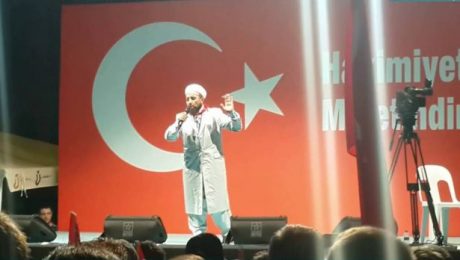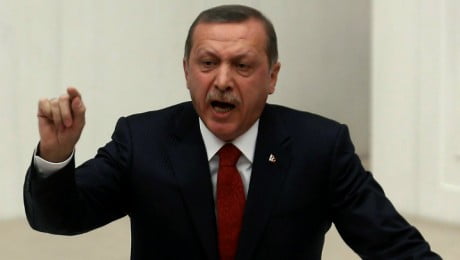Keyword: Hizmet (Gulen) movement

Berlin mayor accuses Turkey of waging war on Gulen supporters in Germany
“I was approached and asked by a Turkish government official, whether we would be prepared to critically confront the Gulen movement in Berlin,” Michael Müller, mayor premier of the state of Berlin, told the German newspaper Bild. “I rejected the idea and made it very clear that Turkish conflicts could not be waged in our city,” he added.
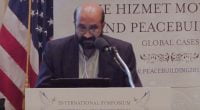
It is unfair, unjust and politically motivated to incriminate the Gulen Movement
As a reader of Gulen’s thinking and a keen observer of the movement, I am convinced that they are aware of the viability of multiple approaches to resolve our global issues as well as the locally troubling scenarios. So to accuse and incriminate a movement that is based on the Islamic notion of hizmet (service) of a coup to topple a civilian rule is unfair, unjust and politically motivated for all practical reasons.

Who was behind the Turkish Coup: Sufi Islamic Scholar Fathullah Gülen or the Regime itself?
Turkish President Recep Tayyip Erdoğan has bluntly blamed it on the Hizmet movement, Gülen’s initiative for intercultural and interfaith dialogue and education in the country expanding across the world today. But for many immensely impressed by Gülen’s global humanitarian, social and Islam-based peace activism, it remains an obscure question as to how the former ally of his country is now blamed for the coup.

Turkey Heads Toward Radical Islamic Dictatorship
Thousands have been arrested. Civil rights are suspended. People are jailed with no way to consult lawyers or present a defense. The coup has become an excuse for Erdoğan to purge state institutions, and even the private sector, of his critics, regardless of their guilt with regard to the insurrection. The Turkish government — and a 100% state-controlled media — has accused the U.S. government of being behind the coup attempt itself and harboring its purported mastermind, Fetullah Gulen.

Turkey coup attempt: Number of people detained passes 26,000 amid international concern over crackdown
Turkish authorities are arresting people for links to the Gulen movement, which denies involvement. The number of people detained by Turkish authorities following the failed coup to oust President Recep Tayyip Erdogan has passed 26,000.

Scholarly views in the aftermath of the coup attempt: A responsible government would rather support the Hizmet Movement
When the Hizmet Movement or Hocaefendi are mentioned specifically by governmentally influenced press in Turkey, it harms Turkey. Yes, it harms Hocaefendi, but not nearly as much as it harms Turkey. Turkey is hurting itself today when it limits political discussion, when it maligns its political adversaries, when it uses political tools and economic tools to harm social services and educational institutions in Turkey.
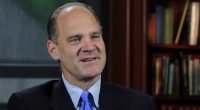
Don’t Make A Mystic into a Martyr: Fethullah Gülen as Peacebuilder
My conclusion? He’s a mystic in the Sufi tradition of Islam. And like other famous mystics in history—notably Gandhi, or Rumi—from whom Gülen draws deeply, Fethullah Gülen is a peacebuilder. And history teaches us that peacebuilders are likely to be misunderstood, vilified, and targeted. It would be tragic if once again historical forces conspire to turn a mystic into a martyr.
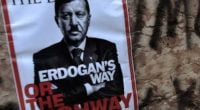
Turkey’s Erdogan vows to cut off revenues of Gulen-linked businesses
“The business world is where they are the strongest. We will cut off all business links, all revenues of Gulen-linked business. We are not going to show anyone any mercy,” Erdogan said, describing the detentions so far as just the tip of the iceberg. The Turkish authorities had already seized a bank, taken over or closed several media companies, and detained businessmen on allegations of funding the cleric’s movement ahead of the failed coup attempt.
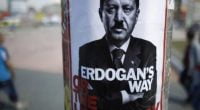
A Personal Story from Turkey: I am a “Man of Law” Not a Terrorist!
I am a lawyer, I am man of law but according to President Erdogan I am a “terrorist” who attempted for a coup! I am writing this letter from a city in Eastern Europe as I had to run away from persecution. Just after my departure on 22 July, Turkish police arrived at my house but could not find me. Instead, with the intention to bring me out they have decided to detain my mother who is 86 years old and can barely walk.
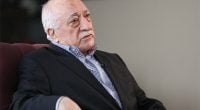
Turkey’s post-coup crackdown moves overseas
In several cases, Turkey has offered to run the seized institutions, although it is expected to face legal challenges. Kimse Yok Mu, which had more than 200,000 volunteers in 100 countries before being forcibly closed after the coup attempt, is understood to be preparing to take the decision to international courts. Joshua Hendrick, an expert on the Gulen movement said Ankara faced a big challenge when it came to stepping into the shoes of its former allies.

